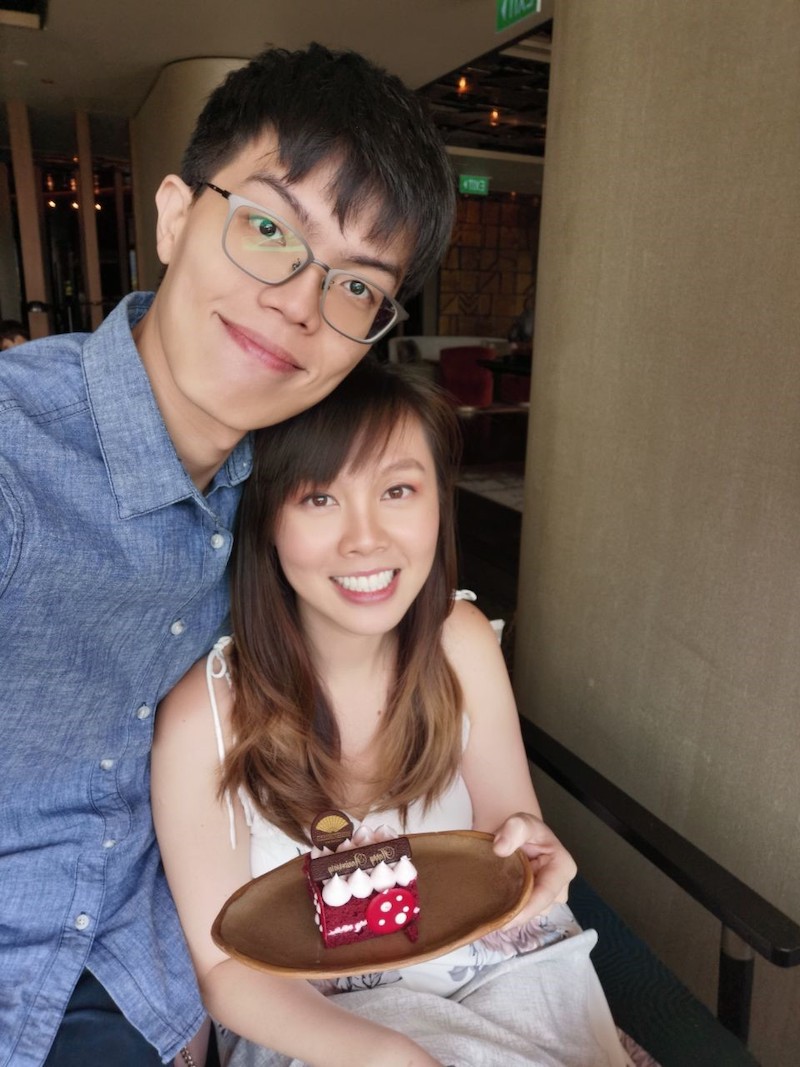'It's hard to shake off the feeling that this pregnancy is too good to be true': IVF was the answer for this couple who went through 3 miscarriages


For many couples, their journey to having a child is marked with many momentous occasions and celebratory milestones — seeing their child's first heartbeat, completing their first trimester, feeling the baby move.
However, for Chan and her husband, Chow, their road to parenthood has been fraught with fear and trepidation.
Each trip to the doctor fills them with relief when they hear assurance and good news that their baby is growing well. However, it lasts for perhaps five minutes, until invasive thoughts start creeping in again.
This is because Chan has suffered three miscarriages within the span of less than a year.
"It's hard to shake off the feeling that this pregnancy is too good to be true," the 33-year-old confesses in an interview with AsiaOne. "We don't dare to hope. This could slip through our fingers any moment."
What's different about her pregnancy this time though, is that the foetus was conceived through in-vitro fertilization (IVF).
Chan is currently four months pregnant. This is also the first time the couple has made it past the first trimester.

After experiencing two losses, the couple decided to undergo a fertility screening with Thomson Fertility Centre. This was when they learnt that Chan is a carrier of low-level Mosaic Turner Syndrome (MTS) and this was a cause for the miscarriages she suffered
MTS is a rare non-hereditery genetic disorder whereby a woman does not have the usual pair of X chromosomes. This missing gene prevents the body from growing and developing normally, and puts them at a lower chance of producing normal or balanced eggs. As a result, most women with MTS are infertile, or are at increased risk of stillbirths, miscarriages or malformed babies.
With IVF, mature eggs are retrieved from the ovaries and fertilised by sperm in a lab. The embryos are then screened for potential genetic issues before being transferred into a uterus. This process helps overcome the possibility of fertilising eggs that cannot be carried to full term.
Following one cycle of IVF, Chan and Chow had 32 out of 36 eggs fertilised, but only 16 were normal embryos.

While they eventually managed to get help from Thomson Fertility Centre, their initial request for a referral to a recurrent pregnancy loss clinic was rejected. This was as fertility assistance was only available for those with recurrent pregnancy loss, which is defined as the loss of three or more pregnancies. By that definition, the pair hadn't "lost" enough to seek help.
The waiting list at the public hospitals was also very long, with three months later being the earliest that they would be able to see a doctor. Hence, despite the lack of government grants, they turned to Thomson Fertility Centre instead.
It turned out to be the best decision that the couple made as their assigned doctor was empathetic to their situation.
One sentence the doctor said that remained with the couple and made the pair feel that they were finally being heard was: "A loss is a loss. One loss is too much."
This cemented their decision to undergo IVF under the supervision of this doctor.
It also helped that Chan's parents and friends were also encouraging and supportive of her decision to give IVF a try.
In contrast, Chow really hasn't spoken about IVF to his friends. This was because of their "awkward" reactions when they were told of the couple's miscarriages.
"They don't really know how to react, and after a while, you find that you don't want to put them in such an awkward situation, so you just, don't talk about it," he says.

While they are open to share about their experiences now, the pair became withdrawn initially after their first miscarriage. It didn't help that their friends didn't know how to approach the topic. The couple also grew tired of having to put up with "helpful suggestions" from others.
Despite roughly four to six pregnancies resulting in a miscarriage, discussions about miscarriages remains taboo. Instead, couples are often painted the picture that a smooth pregnancy is the norm.
[[nid:481409]]
Hence, the two questioned if there was something wrong with them for a period of time after their miscarriage. It was only when they stumbled across videos and vlogs on YouTube by other couples who had similar experiences that they learnt that there were others like them.
They then found solace in forums, where others shared their own stories and offered advice to those who needed to hear them.
"Because of them, we don't feel so alone," Chow shares. However, because most of the conversation about pregnancy woes centres around women, he felt that it was harder for him to find support when dealing with his grief
"I don't want to take the narrative away from women, because they're going through a lot. But sometimes people forget the husbands grieve too."
It was only when he found an old blogpost by local personality Mr Brown from back in 2010 did he feel that another male understood what he was going through. In the post, Mr Brown had documented the flurry of emotions, pain and loss he experienced when his wife suffered a miscarriage.
While Chow did learn that "it's okay to feel" and "okay to cry", he also admits that he threw himself into work as a coping mechanism.

As the couple are both vets, they are used to administering injections on animals. Humans, not so much, and they studied up as much as they could before it was time to start the injection portion of IVF for Chan.
Because of her MTS condition, they had to freeze their sperm and eggs as they needed to be tested over a period of three weeks. This also meant that it was a longer process for them than typical couples.
However, the husband and wife pair were first-time lucky as their maiden IVF attempt was a success. According to Dr Janice Tung, a consultant obstetrician and gynaecologist at Thomson Fertility Centre, general failure rate remains at a high 60 to 70 per cent. Failure rates rise as the woman ages, and with each unsuccessful IVF attempt.
[[nid:464987]]
There have been advances made in the IVF procedure, in particular, to "shorten the duration of an IVF cycle to less than two weeks of injections", shares Dr Tung.
For now, the couple, while somewhat happy that they are expecting, are still taking whatever precautions they can to ensure a smooth pregnancy, given their prior experiences. For the remainder of the embryos they have frozen, they are keeping it for when and if they decide on a baby number two.
And this would not have been possible if they had not sought help. That said, seeking help is "not a magic bullet of 100 per cent effective solution to conceiving", says Dr Tung. "In about 15 per cent of couples, no issues may be identified after a comprehensive assessment."
For Chan, she is glad that she didn't shy away from the issue and instead sought help. "You don't have to feel that something has to be wrong with you before you seek help. There are places to help you through your journey."
rainercheung@asiaone.com